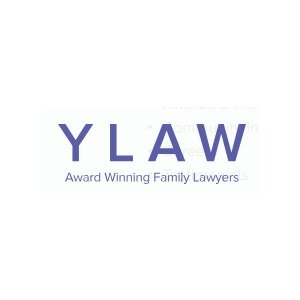Best Energy Regulatory Law Lawyers in Vancouver
Share your needs with us, get contacted by law firms.
Free. Takes 2 min.
List of the best lawyers in Vancouver, Canada
About Energy Regulatory Law in Vancouver, Canada
Energy Regulatory Law refers to the legal framework that governs how energy is produced, distributed, marketed, and consumed within a particular region. In Vancouver, Canada, this area of law covers a wide range of activities and industries, including electricity, natural gas, renewable energy, and oil pipelines. As the demand for energy continues to grow and concerns about environmental sustainability rise, this legal field is crucial for balancing economic, environmental, and social interests. Energy Regulatory Law in Vancouver is shaped by federal and provincial legislation, regulatory bodies, and case law, all working together to ensure that energy systems are safe, reliable, and managed in the public interest.
Why You May Need a Lawyer
There are many situations where individuals, businesses, or organizations may require legal guidance in the area of Energy Regulatory Law. Some of the most common scenarios include:
- Obtaining permits and approvals for new energy projects or infrastructure developments
- Navigating regulatory compliance for energy generation, distribution, or retail sales
- Negotiating energy contracts or power purchase agreements
- Participating in rate hearings or disputes before regulatory tribunals
- Addressing issues related to renewable energy installations such as solar, wind, or hydropower projects
- Managing land use, environmental, or Indigenous rights concerns related to energy development
- Responding to government investigations or enforcement actions regarding regulatory breaches
- Seeking compensation or remedies for regulatory or market changes
Legal counsel can help you understand your rights, responsibilities, and options under complex energy regulations, and represent your interests in discussions or proceedings with government agencies, regulators, or other parties.
Local Laws Overview
Energy Regulatory Law in Vancouver is shaped by both provincial and federal frameworks, with key roles played by the following:
- Provincial Laws: British Columbia's main regulatory body is the BC Utilities Commission (BCUC), which oversees rates, services, and operations of utility companies. The Clean Energy Act and the Utilities Commission Act set the baseline for energy planning and regulation within the province. Environmental assessments and permitting processes are guided by the Environmental Assessment Act and other relevant provincial statutes.
- Federal Laws: The Canada Energy Regulator (CER) oversees interprovincial and international pipelines, energy exports, and certain energy projects. Federal legislation such as the Canadian Energy Regulator Act and the Impact Assessment Act can apply to larger projects spanning multiple jurisdictions or those with significant environmental impacts.
- Municipal Regulations: The City of Vancouver has authority over local land use, zoning, and building codes, which can impact where and how energy installations are developed within the city limits. Municipal policies may also promote sustainability and renewable energy adoption.
In Vancouver, energy companies and developers often need permits and approvals from multiple levels of government. Additionally, project proponents must consider Indigenous rights and interests, particularly where traditional territories and consultation requirements are involved.
Frequently Asked Questions
What is the main regulatory body for energy in Vancouver?
The main provincial regulator is the BC Utilities Commission (BCUC), which oversees electric and gas utilities in British Columbia. For projects crossing provincial boundaries or dealing with exports, the Canada Energy Regulator (CER) may also be involved.
What types of energy projects require regulatory approval in Vancouver?
Large infrastructure projects such as electricity generation facilities, transmission lines, natural gas pipelines, and renewable energy installations commonly require regulatory approval, including environmental assessments and permits.
How are utility rates set in British Columbia?
The BC Utilities Commission reviews and approves the rates charged by regulated utilities to ensure they are fair, reasonable, and in the public interest. This involves hearings where interested parties can make submissions.
What laws promote renewable energy in Vancouver?
The Clean Energy Act encourages the development and integration of clean and renewable energy sources in British Columbia. The City of Vancouver also has strategies to promote green energy and reduce greenhouse gas emissions.
Can the public participate in regulatory hearings?
Yes, individuals and organizations can participate in regulatory proceedings before bodies like the BCUC, either as interveners or by submitting comments.
Are there special considerations for Indigenous rights in energy projects?
Yes, the legal duty to consult and, where appropriate, accommodate Indigenous peoples applies to energy projects that may affect their rights or territories. This can involve government-to-government discussions and other forms of engagement.
Do small-scale energy projects require regulatory approval?
Some smaller projects, such as rooftop solar installations for personal use, may be subject to municipal permitting requirements but do not usually need BCUC approval unless they involve feeding electricity back into the grid or other regulated activities.
What happens if an energy company violates regulations?
Violations can lead to investigations, fines, penalties, or orders to remedy the breach. Regulators have enforcement powers to ensure compliance with licensing and operational standards.
How are disputes between energy companies and customers resolved?
Disputes can often be resolved through regulatory complaint processes with the BCUC or through civil litigation if contractual or damage claims are involved.
What role do municipalities play in energy regulation?
Municipalities like Vancouver control zoning, building permits, and certain land use decisions that affect where and how energy infrastructure can be developed. They also adopt policies to encourage energy efficiency and sustainability.
Additional Resources
Those seeking more information or support regarding Energy Regulatory Law in Vancouver can contact or consult the following organizations and resources:
- BC Utilities Commission - Oversees and regulates public utilities in British Columbia
- Canada Energy Regulator - Regulates pipelines, energy development, and trade across provinces and international borders
- Province of British Columbia, Ministry of Energy, Mines and Low Carbon Innovation - Develops provincial energy policy and regulation
- City of Vancouver, Sustainability Group - Provides information on local energy and climate policies
- Environmental Assessment Office - Responsible for environmental assessments of major projects in BC
- Indigenous Services Canada - Information on Indigenous consultation and engagement processes
- Legal Aid BC - May provide legal assistance in some regulatory matters for eligible individuals
- Law Society of British Columbia - Find qualified lawyers specializing in Energy Regulatory Law
Next Steps
If you require legal assistance concerning Energy Regulatory Law in Vancouver, consider taking the following steps:
- Clearly identify your legal issue, whether it concerns a proposed project, compliance, a dispute, or another regulatory matter.
- Gather all relevant documents and information, such as permits, correspondence from regulators, or contracts.
- Contact a lawyer experienced in Energy Regulatory Law. You can search the Law Society of British Columbia's directory to find a qualified professional in your area.
- Prepare specific questions and objectives for your initial consultation to help the lawyer assess your case efficiently.
- Stay informed by reviewing resources from the BC Utilities Commission, Canada Energy Regulator, and local government bodies.
Working with the right legal advisor can help you navigate regulatory requirements, protect your interests, and achieve the best possible outcome for your energy-related matter in Vancouver.
Lawzana helps you find the best lawyers and law firms in Vancouver through a curated and pre-screened list of qualified legal professionals. Our platform offers rankings and detailed profiles of attorneys and law firms, allowing you to compare based on practice areas, including Energy Regulatory Law, experience, and client feedback.
Each profile includes a description of the firm's areas of practice, client reviews, team members and partners, year of establishment, spoken languages, office locations, contact information, social media presence, and any published articles or resources. Most firms on our platform speak English and are experienced in both local and international legal matters.
Get a quote from top-rated law firms in Vancouver, Canada — quickly, securely, and without unnecessary hassle.
Disclaimer:
The information provided on this page is for general informational purposes only and does not constitute legal advice. While we strive to ensure the accuracy and relevance of the content, legal information may change over time, and interpretations of the law can vary. You should always consult with a qualified legal professional for advice specific to your situation.
We disclaim all liability for actions taken or not taken based on the content of this page. If you believe any information is incorrect or outdated, please contact us, and we will review and update it where appropriate.










